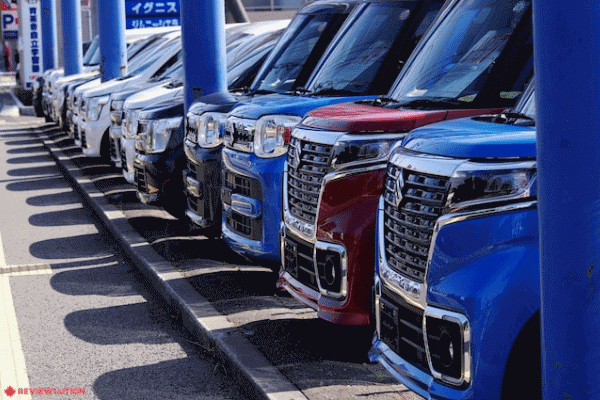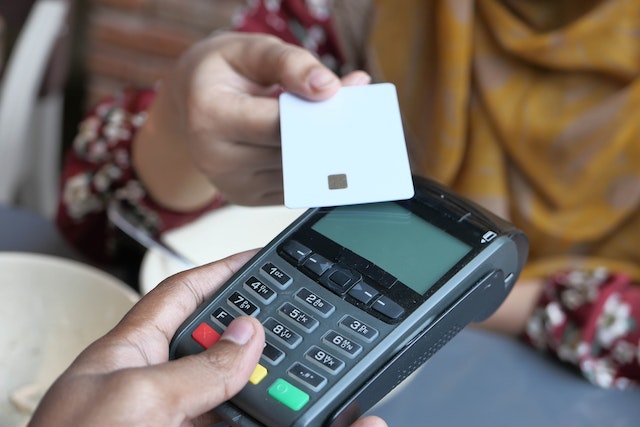Do Car Dealers Make Money Off Financing + 4 Income Generators
Do car dealers make money off financing or is their commission limited to the sale of vehicles only?
Knowing how much a dealer makes on sales and financing will give you valuable leverage in the negotiation process and help you get a better deal on your new ride.
Let’s drive right in the details.
Do Car Dealers Make Money Off Financing?
The short answer is yes, dealerships that finance your vehicle make money from the service.
When you get financing at a dealership, the dealer will contact several lenders on your behalf and arrange the loan for you. Dealers typically earn a 3% commission on every deal they finance, although this varies depending on the policy of each individual dealership and the loan provider.
The commission may prove to be a huge incentive to seal the financing deal, resulting in some pushy tactics and even unethical behaviour from car salespeople. For instance, a car dealer may set you up with a loan that charges more in interest just because the lender offers a bigger commission.
Although this does not apply to every dealership, it is a fact that dealers are not obligated to offer you the lowest interest rate provided by banks and credit unions. Actually, according to the FCAC, the interest rate you get at a dealership is usually higher than what you would receive if you applied directly with a bank or online car loan provider.
To ensure you get the fairest deal possible, the FCAC advises comparing loans from several lenders and different dealerships. Make sure you calculate all the expenses involved (including administration fees and interest) and the overall cost of the loan—usually, long-term loans accumulate more in interest over time, making them costlier in the long run.
You can read more about the differences between long-term and short-term loans here
You should also:
- Check and double-check the contract before signing. Unethical dealers could extend the loan term or increase the interest rate in the contract itself—this is very rare, but it never hurts to be extra careful.
- Don’t trust 0% financing offers. More often than not the discount you are getting with zero financing is already calculated within the price of the car.
How do BHPH car dealerships make money off financing?
Car buyers with bad credit or low income, i.e. those who are not likely to get approved by a traditional financing institution, typically turn to BHPH dealerships.
Instead of arranging a loan for you with a bank, BHPH dealerships will lend you the money themselves. This means you will pay back the loan (plus interest, which is usually very high) to the dealer. If you can’t make payments, they will repossess the car and re-sell it, making a substantial profit either way. The latter seems to be very common—according to used car dealer Ride Time, around 33% of BHPH cars are repossessed as opposed to just 2% of vehicles at standard dealerships.
New Car Sales
It may seem hard to believe, but dealers do not make a lot of money from the sale of a new car. In fact, it is estimated that less than 8.7% of the vehicle invoice price goes to the dealer.
To better understand how dealers make money from new vehicle sales, you need to know the difference between the MSRP and invoice price.
MSRP is short for the Manufacturer’s Suggested Retail Price. As the name implies, it is the suggested price of the vehicle and is typically a few hundred or even thousand dollars less than what the car dealer is selling it for.
The invoice price is the cost the dealer pays for the vehicle to the manufacturer. This price includes several hidden profits for the dealership such as
- The dealer holdback. This is a discount that manufacturers provide to their dealers. The holdback is used to pay for salaries, overheads and commissions and ranges between one and 3% of the vehicle’s MSRP.
- The dealer allowance—also known as a factory-to-dealer rebate, it is used to motivate dealers to sell more vehicles, especially less popular models that are slow to sell.
- Stair-step incentives—car salespeople might receive volume bonuses for selling a set number of cars per month.
These discounts make up hundreds or a few thousand dollars in the cost of the invoice price and the MSRP, which means that there is a lot of wiggle room on the final price.
Used Car Sales
Another source of income for dealerships is the sale and financing of used cars.
Dealers usually acquire used cars from auctions, customer trade-ins or from other dealerships. They then mark up the price and sell it to an interested buyer.
Although buying second-hand cars from other dealerships is the simplest and most common method for used car dealerships to purchase vehicles, auto salespeople can make the biggest profit out of car trade-ins. Dealers are aware that customers are anxious to get rid of an old car and upgrade to a new model, so they will try to lower the price of the old vehicle and jack up the cost of the new one.
Tip: Make sure you get your car appraised before taking it to the dealership—this will give you some leverage when negotiating with the dealer. You can also use sites like Kelly Blue Book and Canadian Black Book to get a rough idea of the value of used and new cars in Canada.
Repairs and Parts
Repairs and spare parts are another revenue stream for dealerships.
Even though auto dealerships must fix cars under warranty for free, there might be an issue with the vehicle that is not covered, so you will end up paying for expensive repairs out-of-pocket.
Tip: You don’t have to bring your car to the dealership for repairs and maintenance, although it is recommended you do so, especially if you have a warranty. Getting work done somewhere else may void your guarantee, so you will not be reimbursed for any expenses.
Fees and add-ons
Car dealerships make the most money out of fees and add-ons.
Some of these fees are mandatory, while others are just added to the final tally to profit the dealership.
Let’s take a closer look at which fees you should pay and which ones you should avoid.
- Freight-—paid to the manufacturer for the transportation of the car from the factory to the dealership. This is a mandatory fee.
- PDI-PDE (pre-delivery inspection/expense) is another mandatory fee paid to the manufacturer for ensuring the car is roadworthy. This normally involves filling the car with gas, removing plastic covers from the seats or washing the vehicle.
- Government levies such as regulatory fees, tire tax, and air tax. Also mandatory.
- Administration fees, including transaction, brokerage licencing and paperwork processing fees. Although these fees are legit, you should double-check how much the dealer is charging you.
Any other fees are not considered mandatory so you should carefully read the invoice and ask your dealer to break down the costs for you.
Apart from fees, dealerships will try and sell you several add-ons, most of which are optional and often completely unnecessary. What’s more, they tend to be overpriced, so a big chunk of what you pay goes to the dealership.
Here are some of the car add-ons a car salesperson might try and convince you to buy:
Loan Protection Insurance
This is an expensive form of insurance that covers the buyer and the lender if the borrower is not able to repay the loan.
Extended warranties
This is one of the biggest moneymakers for dealerships. It’s not to say that extended warranties are a bad idea, but in general, they tend to cost more than the repairs carried out. On top of that, Consumer Reports state that more than half of car owners never used their warranty, but paid an average of $1,200 for it.
Tires
Tire charges can range from low-cost fees (such as the green tire levy which is mandatory in most provinces) to expensive add-ons (like nitrogen-filled tires, which can cost $700+). Ask your dealer to explain which charge is a must and which is optional.
Anti-theft devices
These can cost between $800 to $1,500, says CityNews, but come with no guarantee of efficiency.
Vehicle accessories
Accessories such as window tinting, VIN etching, door edge guards and wheel protection are usually just fancy add-ons and not a necessity.
Paint Protection and rust proofing
These are coats of paint used to protect your vehicle from rust, bird droppings, dust and UV rays. They are effective, but the damage caused is usually superficial and not worth the extra cost.
Tip: Carefully read the invoice before you sign it to avoid unnecessary charges and add-ons. If you do opt for extras, make sure they are installed before you drive the car away.
How much do dealers make in Canada?
Dealers make most of their money from commissions and bonuses. The average salesperson gets around 25% of the gross profit from the sale of a vehicle—so if the dealership makes $2,000 on a car sale, the salesperson would get $500 as commission. The size of the commission also varies from one brand to another—some luxury vehicles come with higher commissions than cheaper brands.
How much an individual dealer makes also depends on how many cars they sell. For instance, if the average salesperson sells about 8 cars a month they would earn around $3,000. Those who make 20 sales or more, can get salaries up to $15,000 a month. This is in line with data from Talent.ca which puts the average dealer salary in Canada at $39,585 a year.
Bottom Line: Is Financing With a Dealership a Good Idea?
It can be, provided you have compared several offers from banks and lenders yourself so you know what kind of interest rate you are likely to get. This will stop the dealer from offering you higher interest and fees on the loan, as well as give you some leverage when negotiating the price.
It doesn’t hurt to have info on the car you are interested in beforehand, including the invoice price, the MSRP and the price at other dealerships—the chances of getting a better deal are higher when you are armed with more information.
FAQ
Dealers earn a commission when they arrange a loan for you with a bank or credit union, usually set at 3%. However, some lenders may offer a higher commission to car salespeople, prompting dealers to show you their rates only, even though they are not the lowest. This is not true for all dealerships, but it’s a good idea to look over all the deals on the table before making a decision.
No, you are responsible for making your own payments to the lender. The dealer is just the middleman. Things are different when you get a loan from the dealership’s in-house financing department. In this scenario, if you default on the loan, the dealership will repossess your car and sell it to someone else.
Auto finance managers are the people that oversee the financing options for cars and make sure that the dealership makes a profit on extras, such as extended warranties and GAP insurance. Since they are in charge of the dealership’s backend profit (their most profitable revenue stream), auto finance managers are paid very well (top performers may earn more than $20,000 a month).











